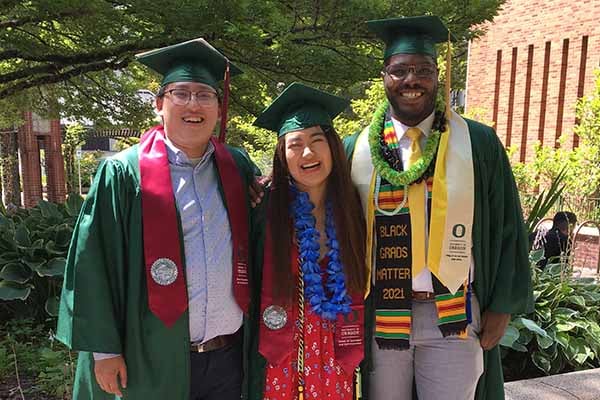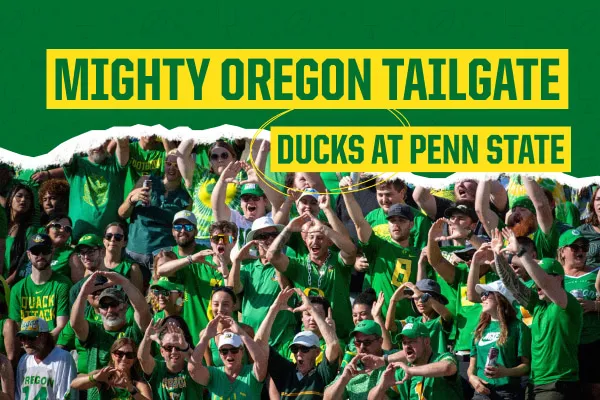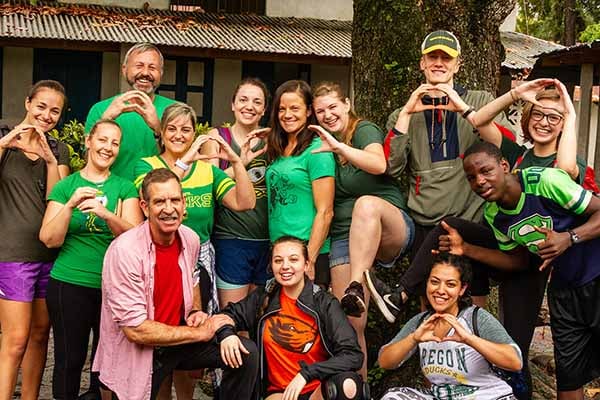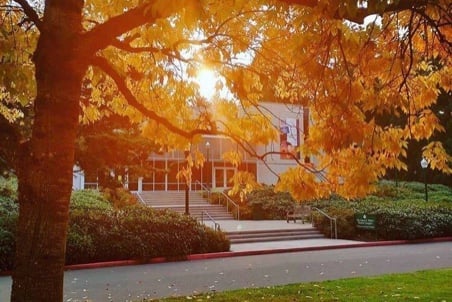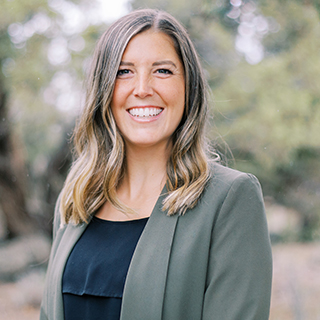
Gabby Sanders, BS ’14 (accounting), MActg ’15
Finance Manager, Impossible Foods & Co-Founder, Keto Pint; UOAA Board of Directors
Part of the Daily Emerald’s “Alumni Take Flight” feature series
Written by Lauren Leone, UO student columnist
Gabby Sanders graduated from the UO in 2015 with a masters in accounting and now works as finance manager for Impossible Foods. She cofounded Keto Pint and serves on the UOAA Board of Directors. Gabby shares what she wishes she had known as a student, about her drive to study business, and the importance of networking.
What drew you to study business at UO and what were some of your key takeaways?
I knew I wanted a degree in business because I had always been drawn to business and numbers and seeing a physical product being in the market. My dad was also on the finance accounting career path, and I saw the successful career he had while growing up and the stability that provided. I thought it would be a good background to know about finance and accounting, and how a business operates, to take me anywhere from there. The field at the time didn't have a lot of women in finance, so I thought it would be good to have that under my belt. I learned a lot about leadership at UO. Especially in being involved in some of the different clubs on campus and the sorority I was involved in, I learned how to be a leader and work with different teams. That’s something that’s prevailed throughout every career and every organization I’ve worked for, by just being able to work with different people and different teams, and learning how to communicate well.
What was your favorite memory at UO?
My favorite memories all stem from football games. I remember waking up early to grab brunch, then walking to the tailgates together before watching the football game. It was a whole day of supporting the school spirit and being in the community and having fun. During my master's program, we did a trip to Europe. There were twenty of us from the master’s program that went to the Netherlands and did a week-long program which was a very cool experience. We stayed at a business school in the Netherlands and were a part of meetings with Nike and Deloitte and different consulting firms. It was a fun experience to be able to learn about expanding our horizons.
What are your tips for effective networking and how can students build a professional network early on?
My networking tips are to attend any events where career professionals are in attendance. I know there are a ton of events that UO puts on and I think that one huge step is attending those and bringing your resume or business card and being able to connect with people at the event, and then following up with these people after the event on LinkedIn or sending them a nice email thanking them for meeting with you in person. I think LinkedIn in general is a very important tool that students don’t necessarily utilize. I’ve had a few students reach out to me from UO and I’m always happy to meet with them and I’m sure other alumni are as well. So, I think just not being afraid to reach out and find people who went to UO and utilizing the alumni network is important.
Did you get involved in any campus programs and how do you think those set you up for a career after college?
I was the vice president of membership for the Lundquist Women in Business Club, and the vice president of finance for the Tri Delta sorority. I was a member of Beta Alpha Psi, which was an accounting and finance group in the business school, and I also worked in the business school for one of the directors, so I had quite a few programs that I was involved in, and I think they helped me with the connections I’ve made. It also helped me develop as a leader and learn to speak in front of organizations and in front of groups of people and take on more of a leadership role in those organizations. I think that was very beneficial after school with being able to present myself in a more professional manner and being able to communicate with people who’ve been professionals for a handful of years. I feel that the organizations I was a part of and those groups really helped me develop myself and my communication skills, how I show up every day, and just have that sense of accountability and being a leader of an organization. I would definitely recommend any student get involved in a group on campus and even take a leadership role. It’ll set you up for landing a job after college and show you how to be a good leader.
What do you know now that you wish you would have known while you were a student?
I wish I would have known how to network while I was in college. I would say some people come into school and they know exactly what they want to do after college and what career and job they want, but I was more on the fence where I didn’t really know what I wanted to do. I was interested in business, and I wanted to see where that could take me after college, but I wish I would have networked more with alumni and people in different fields just to get a better sense of what careers are out there and understand a bit more before jumping into my first role outside of school.
What advice do you have for undergraduates?
I have two pieces of advice. I wish I would have known this a bit earlier, but I think a big one is to learn to advocate for yourself. Unless you tell people where you’re trying to go with your career or what opportunities you want to get involved in, or if there’s a specific project you want to be a lead on, if you don’t advocate for yourself, then people don’t know that you want these opportunities. I think I let opportunities come to me without trying to push for things that I wanted to do at the start and it’s important to have those conversations with your managers and leaders at any job or organization that you’re involved in. I think a second one would definitely be finding a mentor in somebody who is above you, someone that you look up to and value their career path and where they’ve gone. Being able to have somebody who can have your back and really sponsor you throughout your career and have those discussions is really important.



